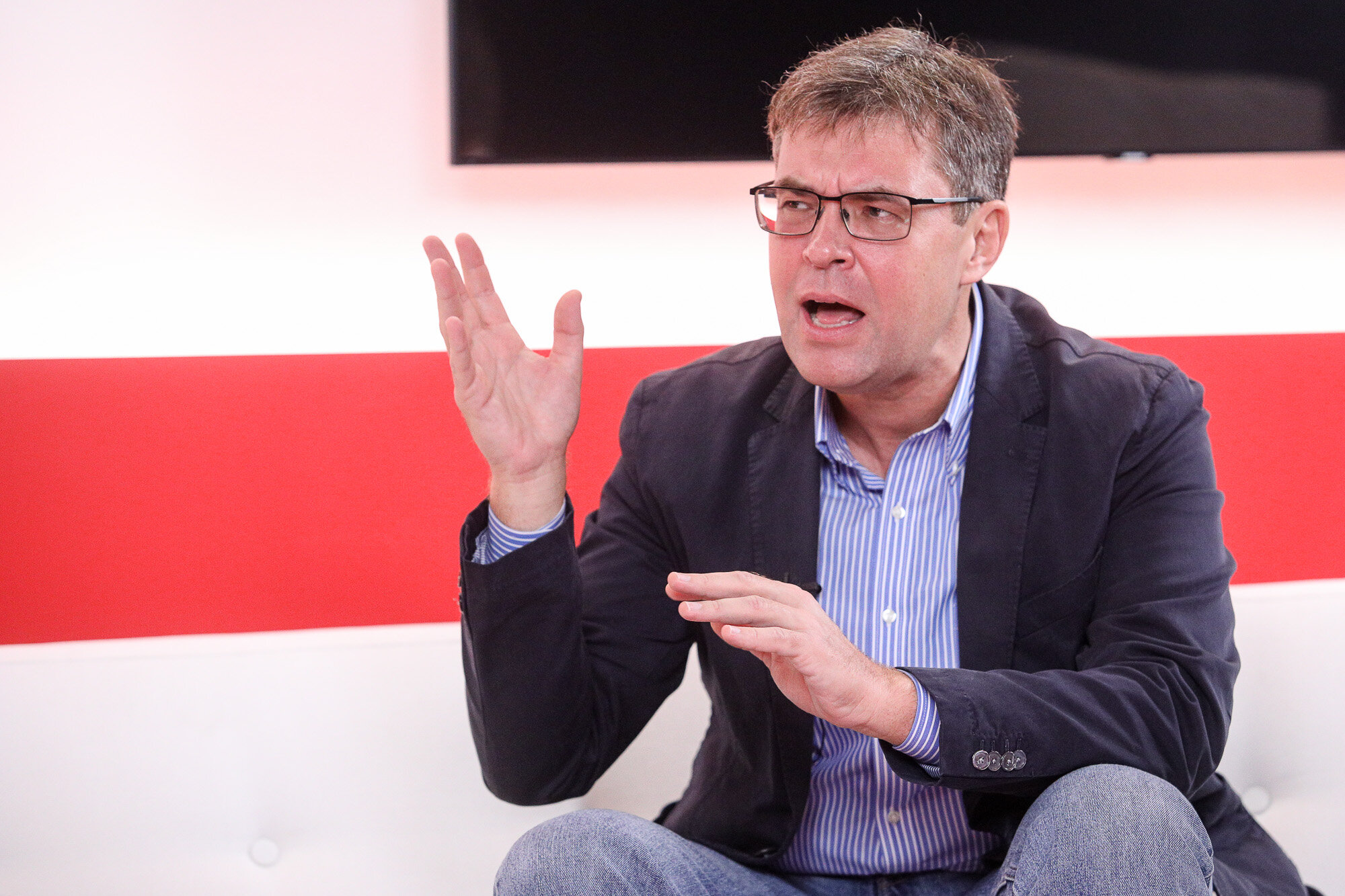Ukraine has been going through one of its worst energy crises in the past three decades. Today, the state owes local green power producers $780 million and doesn’t have any clear plans for how to pay off the debt.
Energy experts who took part in a webinar, titled Energy Talk and held by the Kyiv Post and the European Business Association on Nov. 4, admit that the crisis was caused by wrong decisions made under previous governments. But they think today’s officials must do their best to fix everything and ensure stability.
Watch the Energy Talk discussion
State-owned Guaranteed Buyer’s current colossal non-payment to producers of green energy has become one of the most sensitive issues on the market.
The renewable energy market, which is responsible for 8.6% of total electricity generation in Ukraine, has brought one-fourth of the total of 49 billion euros of foreign direct investment to the country since 1991.
But the current instability and huge debts to market players are threatening the entire industry.
Just like other market players, Carl Sturen, managing director at wind power developer Vindkraft, says his and other investors’ main problem at the moment is how to pay their creditors, who don’t want to wait.
“We are lagging behind on our payments and we definitely can’t wait (until the situation stabilizes in Ukraine),” said Sturen. “If there had been political will, this could have been fixed in a very short time.”
Sergii Shakalov, CEO at Kness Group, the first major Ukrainian solar panel production plant launched in 2019 in Vinnytsia, complained that he has already lost $10 million due to the crisis caused by non-payments.
“I’m really sad about this situation. One of the biggest problems of Ukraine is that it doesn’t comprehend that agreements should be fulfilled in any situation,” said Shakalov.
For Geoff Berlin, a U.S.-based entrepreneur who is investing into a wind power plant that’s currently under construction in Odesa Oblast, it is clear that the credibility of the current government in Ukraine has been “severely damaged.”
Alexander McWhorter, Citibank Ukraine CEO, supports investors — he says no investor can commit their capital to the country if the local government can’t ensure any stability.
“Investors are looking for stability. When they don’t have it, it makes it much harder for them to agree to commit their capital and to get the returns they expect,” said McWhorter.
This also directly affects the decisions of financial institutions and their willingness to lend money to companies that want to invest in Ukraine.
“Any retroactive action like this is very unfortunate. It’s like changing the rules during the game”, said Erik Svedahl, ambassador of Norway to Ukraine, another speaker.
At the same time, Torsten Woellert, a member of the European Union delegation to Ukraine, said the government became hostage to the energy crisis. “I think they do their best to solve it”, sais Woellert.
Kyrylo Kryvolap, head of the Economic Recovery Center and aide to Prime Minister Denys Shmyhal, believes that if the government doesn’t fulfill its commitments signed in a memorandum on renewables in June, Ukraine can forget about its long-term strategy on reducing the share of traditional energy generation.
“If we don’t succeed in this, then we can throw this energy strategy away,” said Kryvolap.
Adam Barbolet, senior trade commissioner and commercial counselor at the Embassy of Canada in Ukraine, believes such a situation may also change the type of investors coming to the country. Chances that reliable Euro-Atlantic investors enter the country will decrease sharply, while other investors — like ones from China — may start to dominate the market in Ukraine.
In general, Chinese investors are often viewed as less reliable than Western companies, as Ukraine has already seen cases when contractors from China did not fulfill their tender commitments. A particularly extreme example occurred in road repairs: Chinese contractors were supposed to complete 70% of their work by a set date, but the company actually finished only 1%.
Oleksandr Kharchenko, managing director at the Energy Industry Research Center, pointed out that the problem of the unpaid green tariffs is the result of a decision that 10 years ago was pushed by Ukrainian oligarchs, who wanted to do business in renewables.
To solve this problem, the first step is to launch a real market where private companies provide power and where the price for electricity isn’t dictated by the government but is set in accordance with the current demand on the market.
“Now it’s a huge mess in regulation, government documents. Without (a real market), nothing else will work properly (including the renewables sphere),” said Kharchenko.

Oleksandr Kharchenko, managing director of Energy Industry Research Center, during the Kyiv Post Energy Talk on Nov. 4, 2020, in Kyiv. (Kostyantyn Chernichkin)
The least damaging way for Ukraine’s government to cope with the renewables problem for the next year, according to Citibank’s McWhorter, is to ensure a sustainable business model, that the Guaranteed Buyer is protected and that it has a source of financing.
“Show that there is no threat of either non-payments or politically driven tariff cuts in the future,” said McWhorter.
The crisis on Ukraine’s energy market was caused not only by green tariffs cuts, but also by significantly reduced energy consumption during the COVID-19 pandemic, according to Kryvolap. As a result, unpaid debts in the whole energy sector have already reached $1.8 billion, while the country’s budget deficit is $11 billion.
“It’s a catastrophe,” said Kryvolap.


